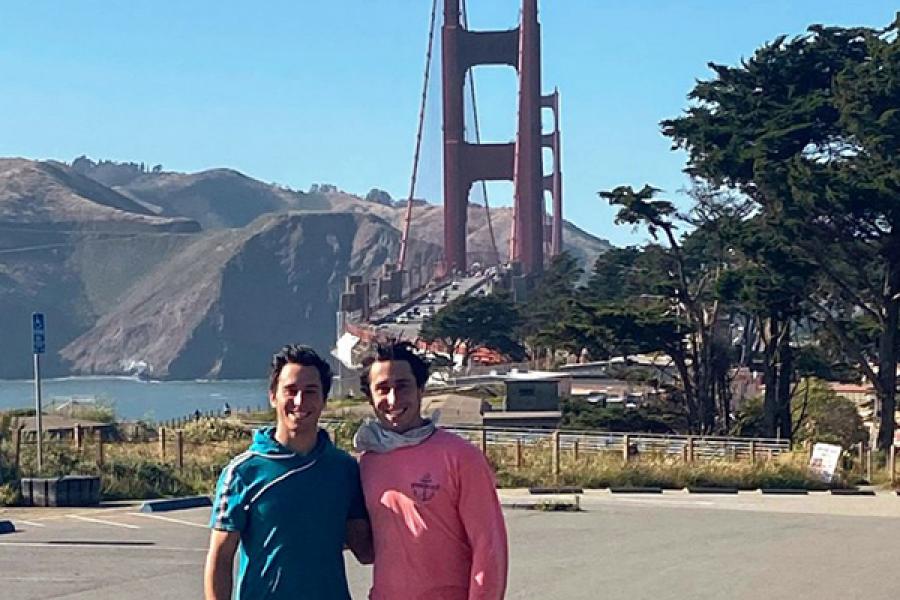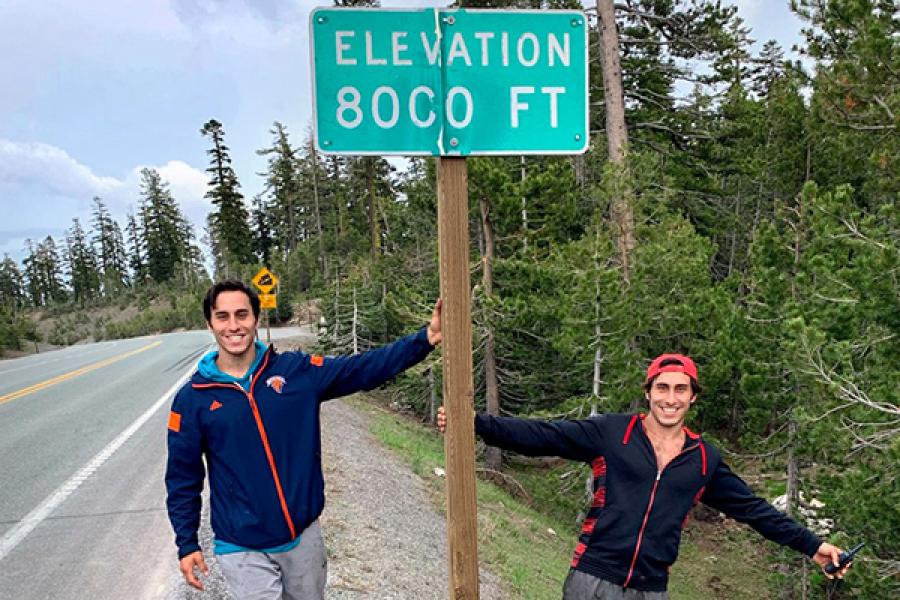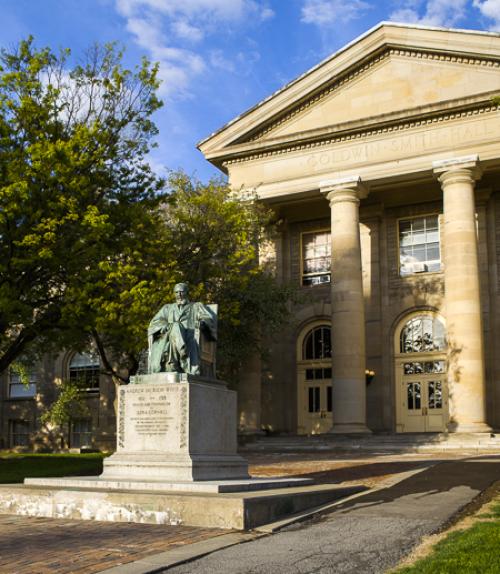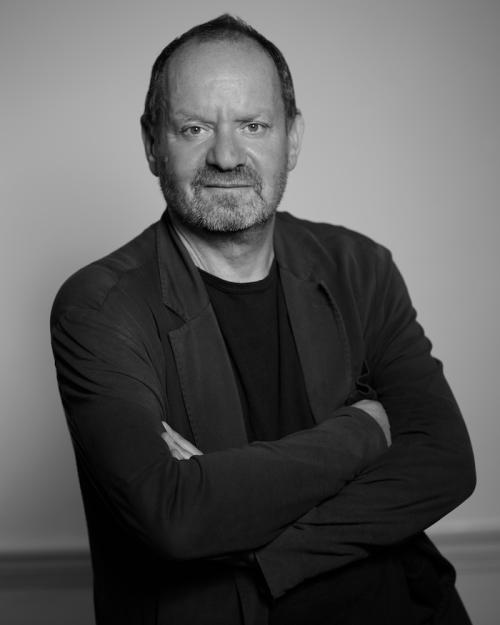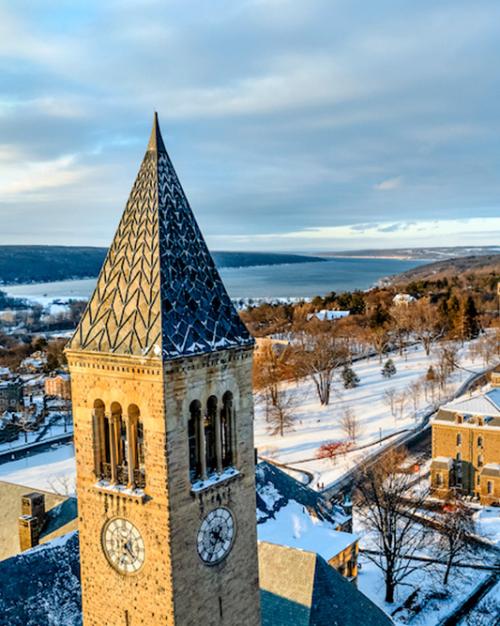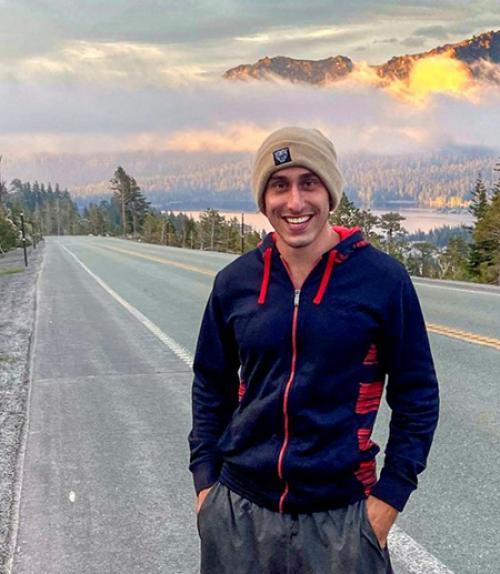They left May 21 from the Golden Gate Bridge in San Francisco, with the goal of crossing the continental United States on foot – running and hiking 3,000 miles – and finishing at the Brooklyn Bridge in New York City.
Zachary Prizant ’18, MPS ’19, and his identical twin brother, Maxwell, have faced wild stallions, rattlesnakes, desert heat, a broken axle on a support vehicle and unforgiving stretches of highway. The long-planned adventure also is a fundraiser to support Heart to Heart International’s COVID-19 relief work.
As of July 27, after the brothers had crossed California, Nevada, Utah and had entered Wyoming, they had traveled about 1,000 miles and raised $7,645 of their $30,000 goal. As they attempt to keep up a pace of 30 miles per day, they are posting photos, stories and videos on their Instagram feeds (Max’s and Zac’s).
The twins rely on a camper to haul their supplies and as a place to sleep. They’ve also used a variety of support vehicles, including Uber and Lyft in the first weeks of their trek and public rental scooters. Most days, the brothers and a driver drop off the camper at the day’s destination, then circle back in a car to the starting point where the brothers then hit the road on foot.
Zac, who lives in Las Vegas, majored in American studies and minored in business as an undergraduate at Cornell. He worked briefly in consulting then returned to Cornell for his MPS degree. He landed a job with MGM Resorts in their management associates program, but when the coronavirus pandemic hit early this year, MGM let everyone in the program go.
“My brother was in a similar rotational program at his casino, Penn National,” Zac said. “We had been talking about doing a trip like this, once we had saved up some money and when we got the opportunity. Then we realized that we weren’t going to get a better opportunity than this.”
They also realized that if they made the endeavor into a fundraiser, they could make a positive impact and perhaps inspire others.
After researching a number of U.S.-based nonprofits, they settled on Heart to Heart International, which strengthens communities by improving health access and providing humanitarian development and crisis relief worldwide.
“All their efforts right now are directed specifically towards COVID-19 relief,” Zac said. “That was a big thing because we want to make sure that all the money we are raising is going toward that.”
Zac said what he learned about himself at Cornell has been resonating with him each day of the trek: “At Cornell, I learned to stay true to my own goals instead of conforming to those of others, and I learned how to push myself to my limits for the sole purpose becoming the best I could be.”
Wild stallions, rattlesnakes and a dog
To entertain themselves during the long stretches of time when they’re not simply enjoying the panoramic scenery, Zac said, they freestyle rap, spar with each other and play online chess during breaks. “We also rock climb when we see a cool boulder on the side of the road and have jumped into a few lakes,” he said.
Other notable moments of the trip include traversing the Bay Bridge, the 10-mile, no-pedestrian-lane stretch of Interstate 80, on foot at 2 a.m. (which they later found out was illegal); and running with a dog that joined them for about five miles near the Utah border; they later drove the dog back home. They’ve seen several bulls, scorpions and nine rattlesnakes (three were dead).
Challenges have included multiple days with temperatures above 100 degrees; crossing 120 miles of desert and scaling a mountain in Nevada’s Dixie Valley; 16 miles of intense hiking in Poco Canyon, Nevada; and the camper getting stuck in the Bonneville Salt Flats in Utah.
That’s also where, as Zac recalled, “My brother said, ‘Look, there are some horses.’ I thought he was making an observation, but what he really meant, was ‘Danger!’”
As Zac turned to look, he saw about 10 stallions charging right at them, with a colt the brothers guessed the stallions wanted to protect.
“They were coming in hot,” Zac said. “They weren’t coming over just to say ‘Hi.’” So he picked up a dry cow pie and chucked it at them. That confused their leader, so the herd turned around – but circled back three more times. The brothers kept throwing stones to ward them off and working their way back to the road and safety.
While the twins’ original goal was to cross the United States in fewer than 100 days, Zac said, they haven’t quite maintained the pace they planned – primarily because of a lack of consistent transportation to get them from the parked camper to each day’s starting point. But they’re feeling good, he said: “The aches have gone away and the blisters are starting to callous over.” They did cover 41 miles on one recent day.
They now estimate they’ll finish their trip by mid-September. “It’s hard to foresee what kind of obstacles we’ll have. If the camper keeps breaking down, it’s not going to happen,” Zac said. “But if everything holds up, we think we can do it.”
Read the story in the Cornell Chronicle.
